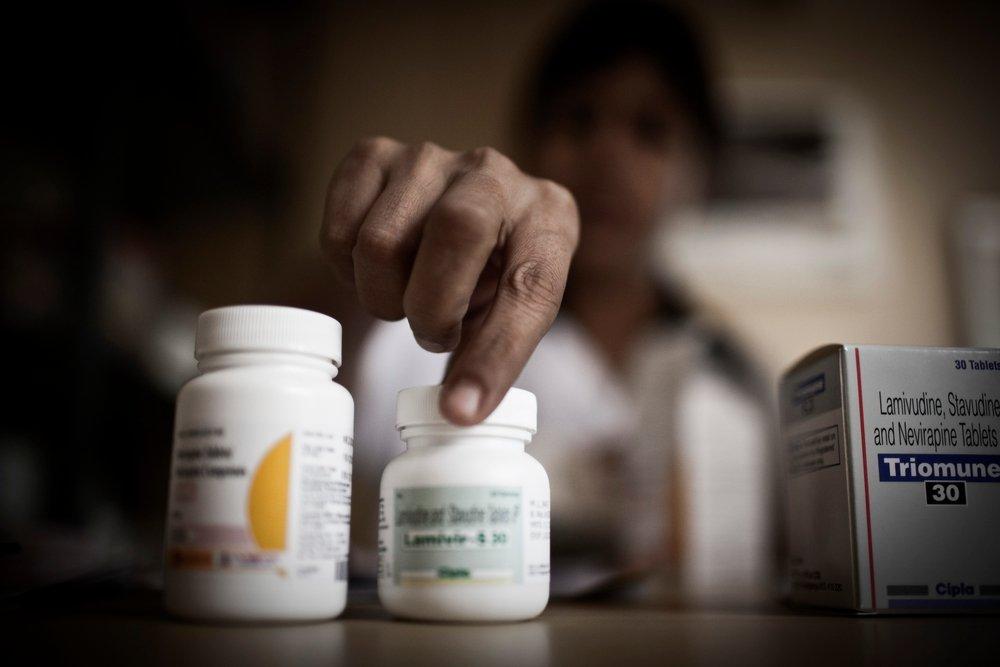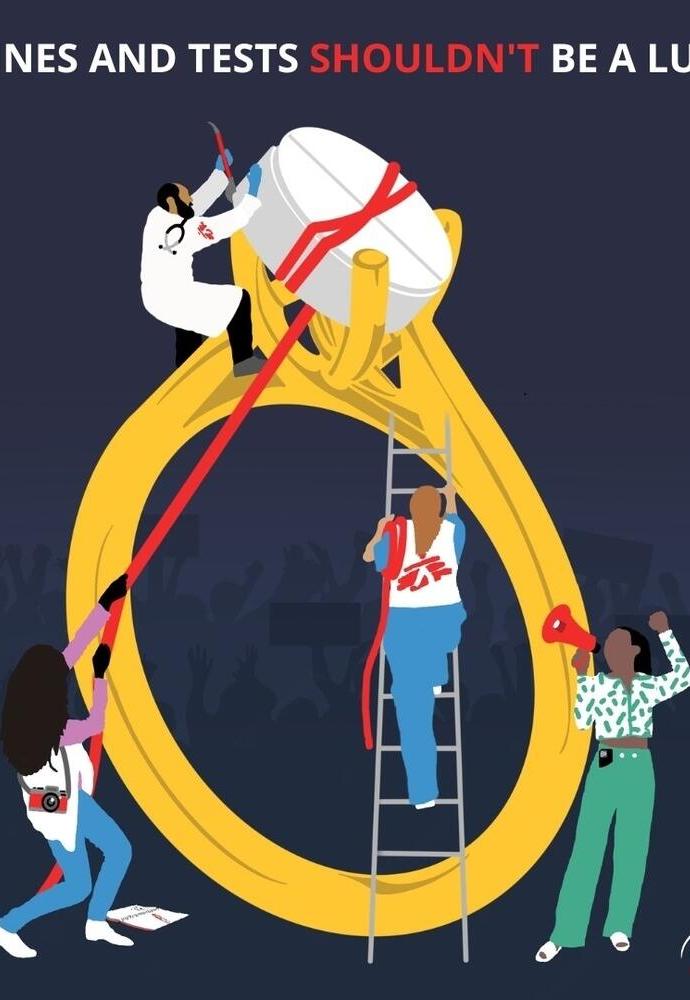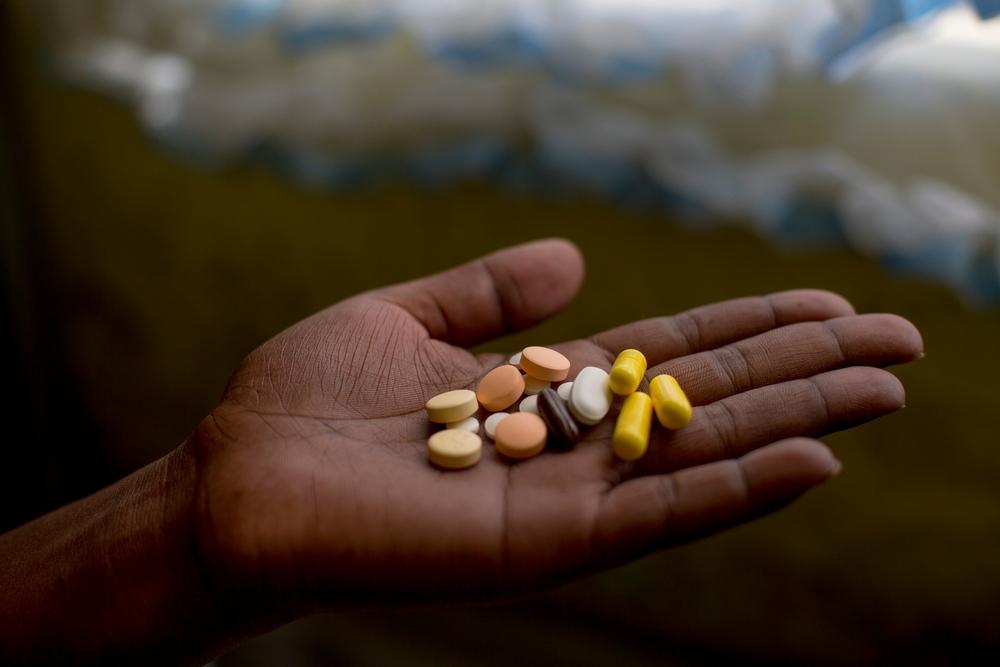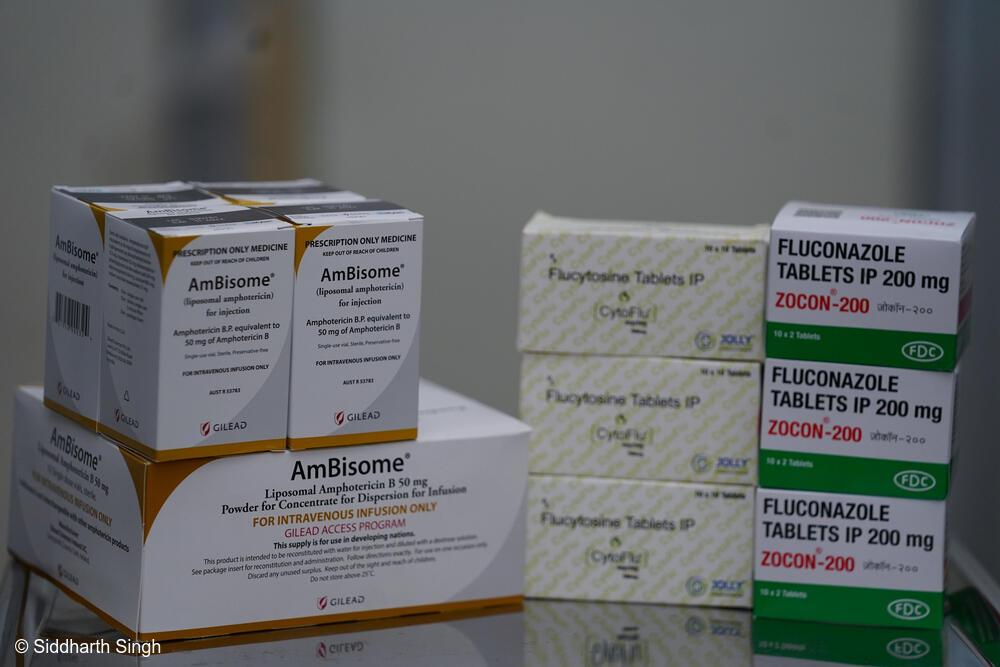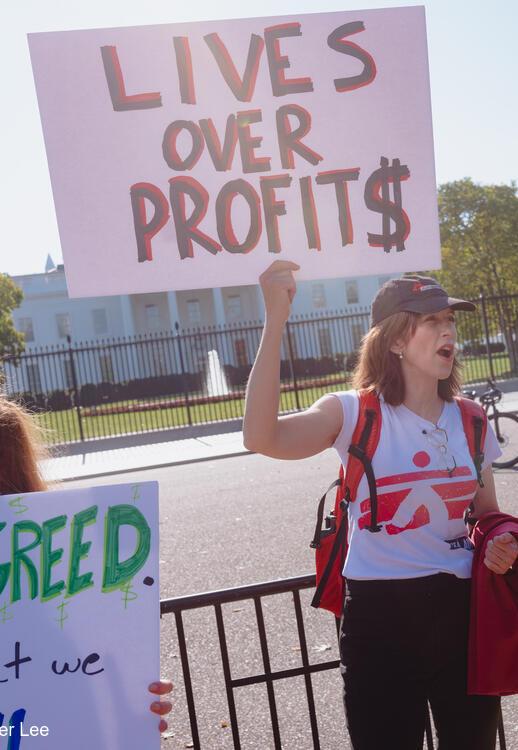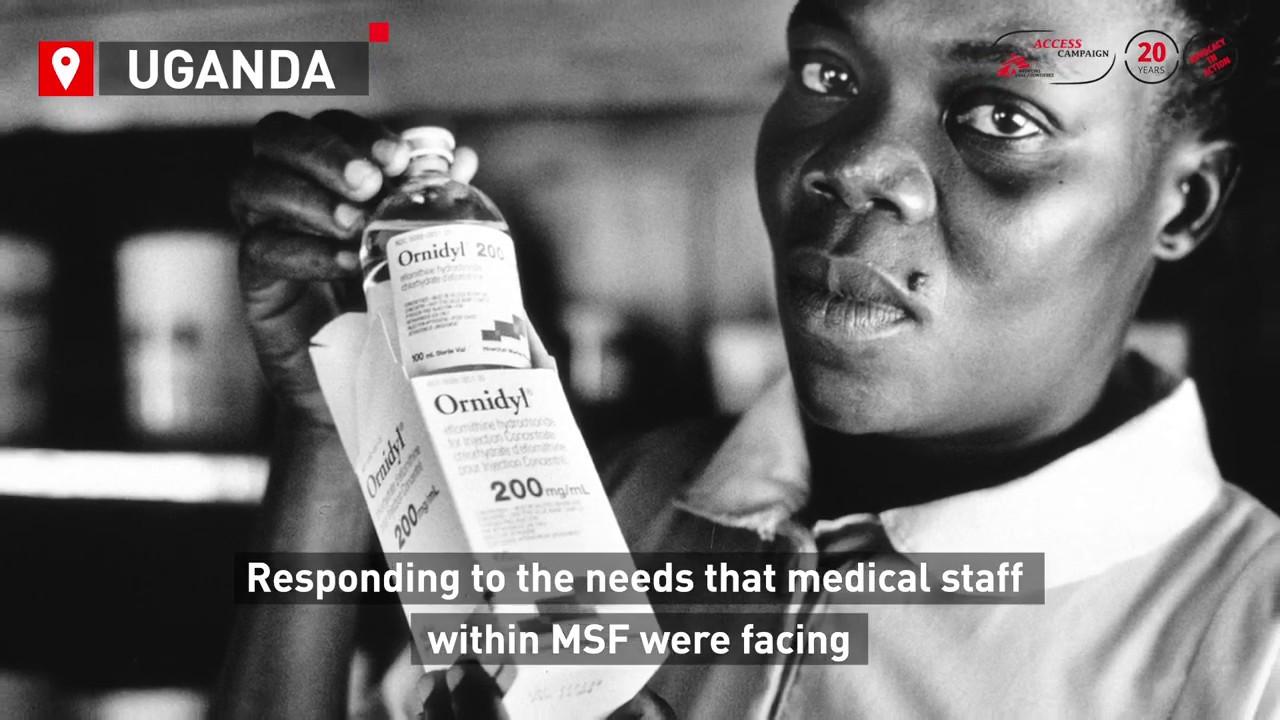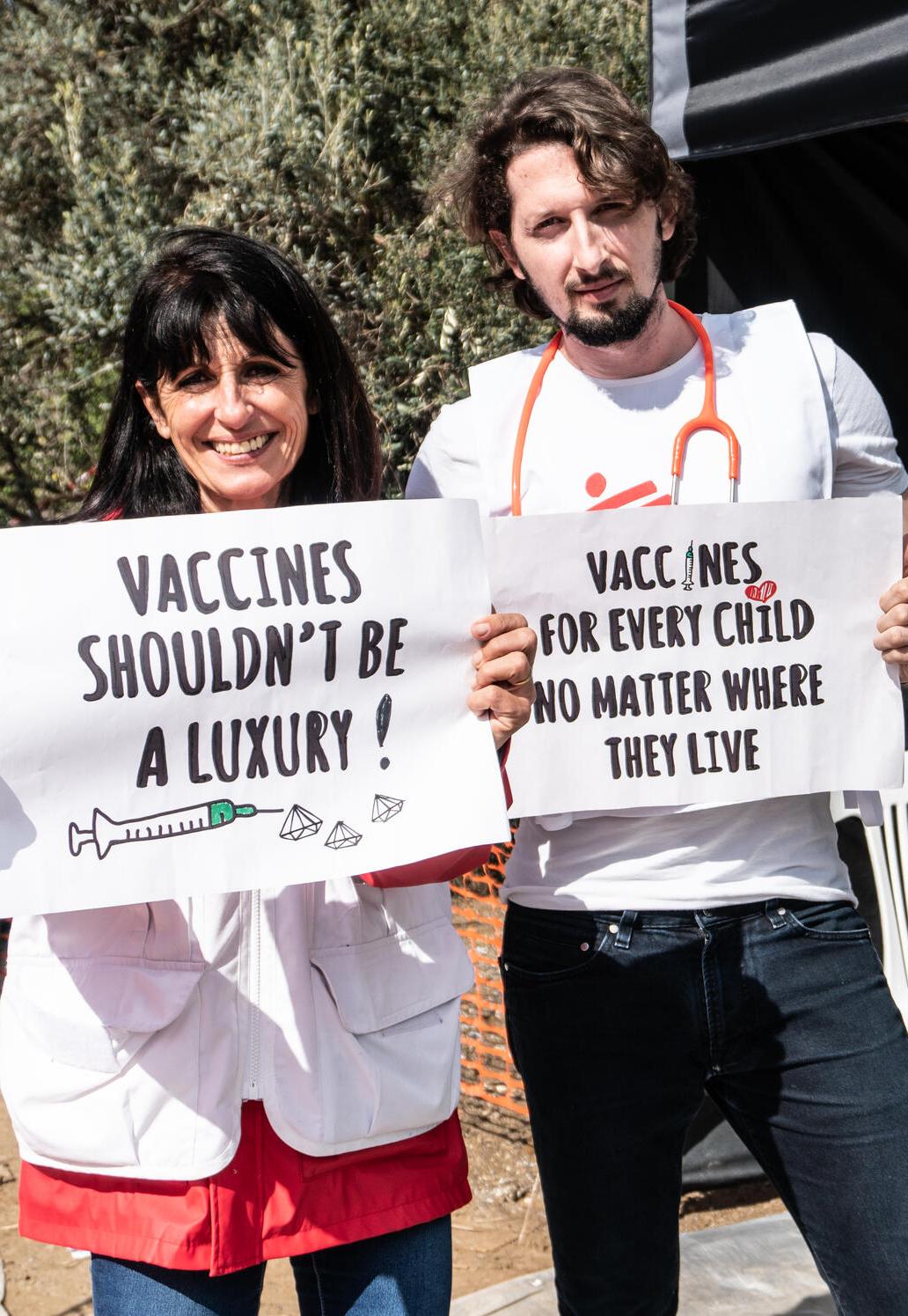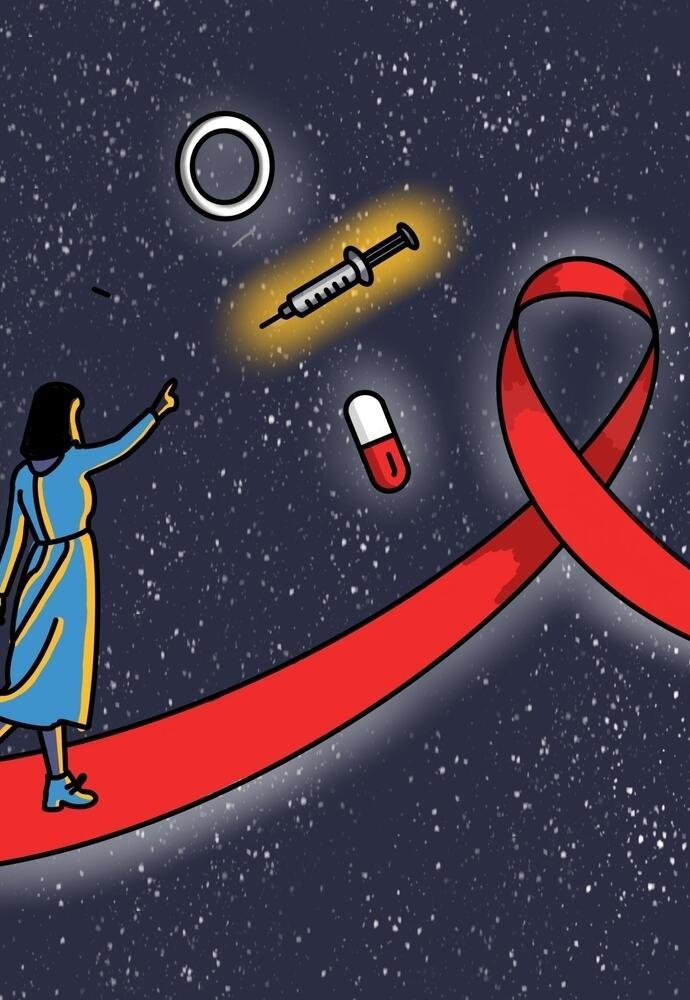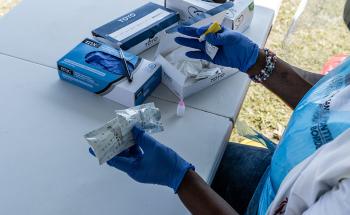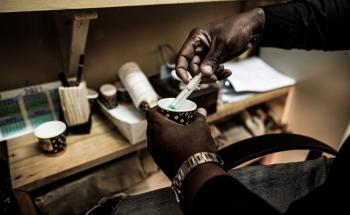
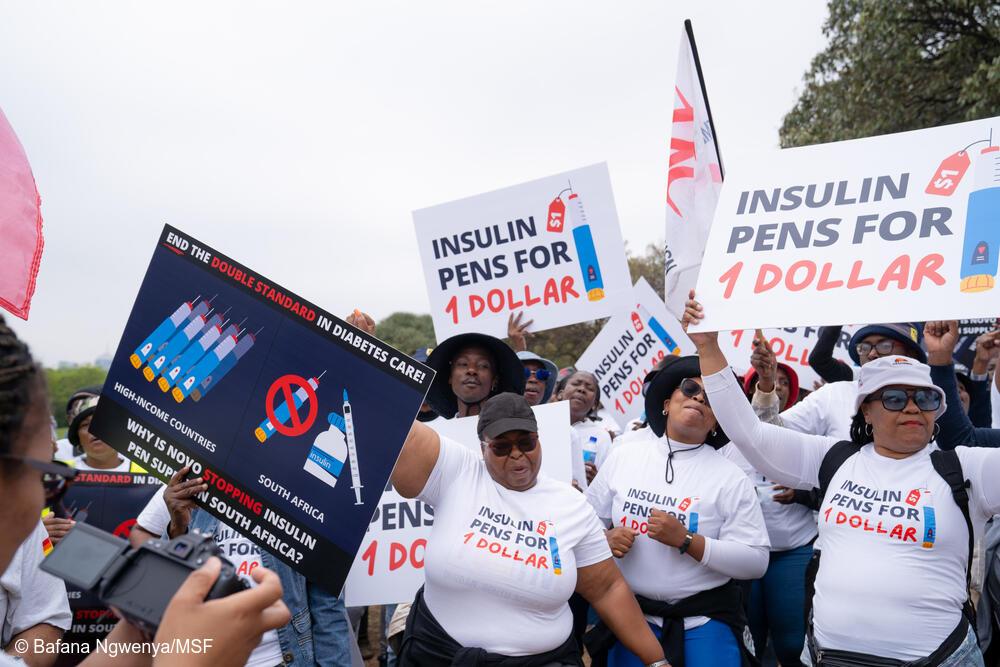
In response to the need for better treatments, vaccines and diagnostic tests MSF set up its Access Campaign in 1999 to improve care for patients.
The aims of MSF’s Access Campaign are to:1. Push for price cuts to medicines, vaccines and diagnostic tests by stimulating the production of more affordable generic products
2. Act as a watchdog to ensure that the corporate interests don’t win out over public health needs
3. Steer the direction of medical research toward urgently needed new drugs, vaccines and tests that don’t exist yet or are not tailored to the needs of people in developing countries
4. Scope out, support and monitor new models to fund medical research that respond to medical rather than corporate needs and do not rely on charging sky high prices for the final product to pay for the research
